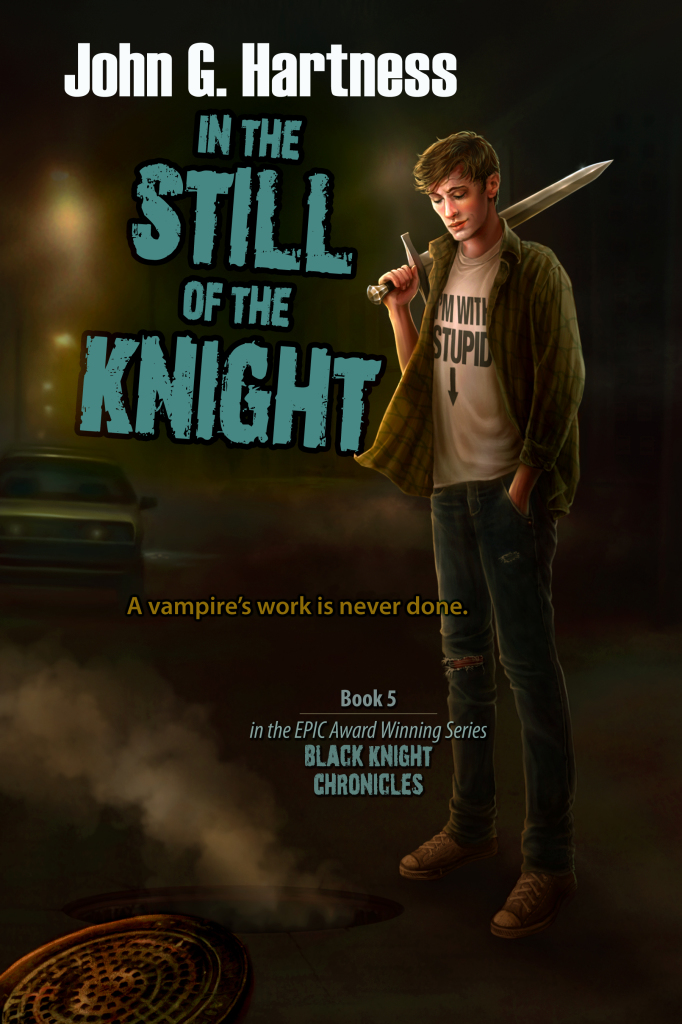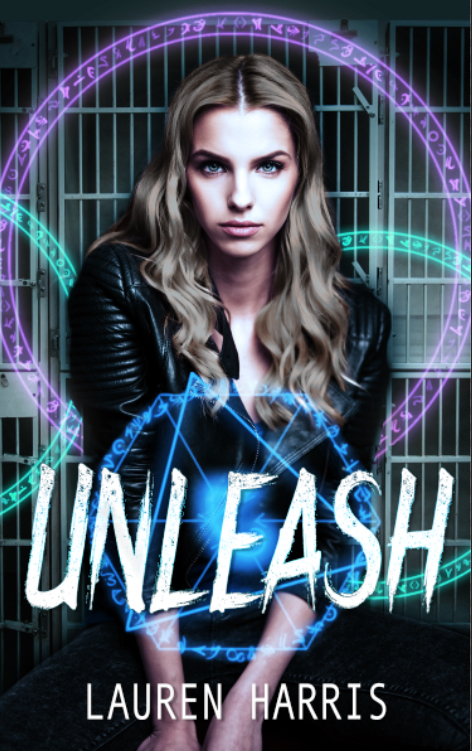
by john | May 19, 2017 | Book Spotlight, Evolution, Writing
I know, I missed a week or two. Sorry. I had conventions, then I had to get over conventions, then life…but anyway, there are a bunch of great Evolution posts coming in the next few weeks, featuring books by amazing writers, including this one, by Lauren Harris. I’ve read Unleash, and this is a helluva kickoff to a new Urban Fantasy series. You should definitely check it out!

If you know me, you know that nine times out of ten, I will gravitate toward characters with swords rather than guns, so UNLEASH was a fat raccoon in the kitchen cupboard–wholly unexpected.
It came at me while I was on my third version of my first novel. Frustrated by an inability to get it past the Revise & Resubmit stage with agents, I shelled out for a novel revision class. While I followed a writing prompt, the first seeds of UNLEASH took root.
I probably wouldn’t have written the book if not for the confluence of several events on October 31st, 2010.
I had come back from Japan mere weeks before and was depressed, isolated, and stuck in rural NC.
- I needed distance from my first book
- I was eager to implement the outlining tools I’d gathered while revising my first book.
- I wanted to prove to myself I could finish a second book.
- NaNoWriMo LITERALLY started the next day.
The moment I realized I needed to write another book, the scene from that exercise sprang to mind. I scrounged up some note cards and hammered out a rough outline of a book I was then calling HELLHOUND.
Okay, so, my outline was almost worthless. I had 24 hours to plot, worldbuild, and develop characters. You know this first draft was a dump. I mean, I ditched a second POV within a few chapters, requiring some structural gymnastics I was not yet skilled enough to accomplish.
Lots of stuff didn’t survive that first draft. There were demons, Celtic ancestor flashbacks, and the bad-guy was immortal. Helena was a fake college student and there was some weird, second-dimension demon gate stuff that I don’t really understand now. All these things were better left on the book-journey’s roadside, though I will forever regret losing the scene where Helena–a shapeshifter–gets arrested while trying to sneak back into her window. Naked.
…which is how I learned that women can’t get charged with indecent exposure in the state of North Carolina. My Sheriff’s Deputy brother sometimes worries about the questions I ask him.
I started writing this book in November of 2010 and finished it that February. That original novel went through an arduous attempt to change it from third to first person before I realized it was the novel equivalent of the money-sink renovation. It was cheaper to just bulldoze the lot and build from all new materials.
After multiple drafts of my first book, I was loathe to get dragged back into the rewrite spiral. So I shoved the manuscript in a drawer, where the ideas fermented and matured while I improved my craft and published novellas and short stories. Finally, I outlined and drafted a book that–though it kept the same main characters and basic plot trajectory–bore absolutely no resemblance to the story I had in 2011.
That book is UNLEASH. Sign up for my mailing list get an exclusive excerpt and a reminder when the book hits the shelves.
Already think you want it? (You do.) It’s available right now, so go grab it!
(Link: www.laurenbharris.com/unleash )

by john | Apr 7, 2017 | Book Spotlight, Evolution, Writing

I’ve been writing fiction since I was in sixth grade, when I wrote a short Silmarillion fanfic telling how the Valar created the halflings. (And now let us pause to appreciate the colossal nerdiness on display in that sentence.) Since then I’ve written dozens of short stories, but only one novel: Blood Family, published in September 2016. Part of what I had to do in the course of writing that book was to figure out how to write a novel—or, more precisely, how I write a novel.
For my short stories, the ideas seemed to come from everywhere and nowhere: a dream, a snatch of conversation, a phrase in an essay, a newspaper headline. When I sat down to write the novel that became Blood Family, I initially started with a similar approach. I knew I wanted my first novel to say something about family, because I’d tried many times before to write about what it was like growing up in a highly dysfunctional family with Southern Gothic tendencies. Unfortunately, none of those attempts came out right, perhaps because they were all personal essays. For my novel I decided to try using fiction to express what my childhood and adolescence had taught me about family.
I also wanted to debunk the popular notion that “every parent out there is just doing the best they can.” Oh, really? When Josef Fritzl held his daughter Elisabeth captive in a basement in Austria for 24 years, raping her the entire time and impregnating her with seven of his children, he was just doing the best he could? When Brice McMillan tied his 13-year-old son to a tree for 18 hours in the summertime in North Carolina, causing the boy to die of dehydration and heat stroke, he was just doing the best he could too? No. They weren’t. They could have done better. There are countless examples from history and the news—and a few from my own family—demonstrating that not every parent out there is just doing the best they can. I wanted to tell a story from the point of view of an adult who had grown up in a family where the adults did not always have the children’s best interests at heart.
If I’d been writing a short story, the conceptualization phase probably would have stopped there, but this was a novel, and I was on a different mission. Most of my short stories have been situated squarely in the mainstream literary realist tradition, with a few adventurous ones sliding sideways into what literary theorist Tzetvan Todorov would call “the fantastic,” which he positions between “the uncanny” (it looks like it might be supernatural, but it isn’t) and “the marvelous” (it’s definitely supernatural). In fantastic stories, the question of the supernatural is raised without being resolved one way or the other, and I liked that—but not for a good reason. I liked the fantastic because it allowed me to dabble in the shallows of the supernatural without diving in and committing to it. “To commit is to be in danger,” James Baldwin said, and I was afraid of that danger. I was afraid of writing openly supernatural stories that the literary elite might look down upon. So I equivocated, writing stories about eerie occurrences that might or might not have a rational explantion.
My novel constituted a decisive break with that practice because, frankly, I was tired of fucking around. I knew the only way I could sustain my enthusiasm and dedication through an entire novel was to write something I really cared about and enjoyed, and for me, that means stories of the other world: ghosts and demons and myths and legends and gods and monsters and magic; cults, covens, religions; spells that really work; portals that really go somewhere. And when I surveyed that rich vein of story ideas, it seemed to me that ghosts, and the unquiet dead in general, would be very useful in telling a story about a family whose parents have visited their sins upon their descendants. You see this kind of thing a lot in Gothic fiction: houses that are reputed to be haunted, for instance, symbolizing the influence of the past upon the present. In my novel, I decided to see what kind of mileage I could get out of making a haunted house actually be haunted, even as I sought to deploy the resonant themes, the psychologically rich characters, and the carefully crafted sentences of mainstream literary fiction.
In short, Blood Family represents the coupling of a theme you might expect to see in a mainstream literary novel (how unhealthy families mangle their descendants) with a story element from genre fiction (the unquiet dead). The entire novel flows from that dyad. I’ve used a similar dyadic structure to develop the basic idea for my next novel, which I’ve already begun working on. I believe this simple structure is a key that can unlock more novels than I could ever possibly write—but I’m going to do my damndest to get as many of them down as I can before I join the ranks of the unquiet dead myself.
Bio: Brent Winter is a writer and editor in Carrboro, North Carolina. Blood Family is his debut novel. To learn more about Blood Family, including where to buy it, visit Brent’s author site. He’s currently at work on a novel that, although not a sequel to Blood Family, is set in the same universe—one where downtown Atlanta hides a strange little neighborhood called D Street that you can’t find on your own; someone who’s already been there has to take you first.
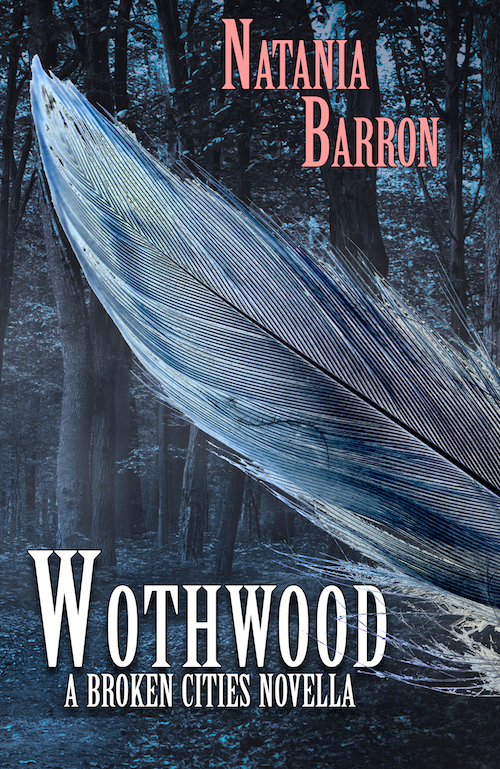
by john | Mar 31, 2017 | Book Spotlight, Evolution, Writing
Natania Barron is a multi-talented amazing human. She’s a mom, a writer, an audiobook narrator, and a badass cover designer. She is responsible for the covers for Wothwood, Into the Mystic, 85 North, and a bunch of upcoming Falstaff Books releases. Go buy her shit!

Wothwood: Where did you come up with the idea?
It’s pretty corny, but the seeds of Wothwood were planted in a dream.
Generally speaking, I’m a pretty vivid dreamer. I tend to dream on an epic scale, and I’ve slayed a few dragons in my time.
This was different, though. In this dream, a son was mourning his father, a ruler of some kind. I was the son, and the connection I had to my father was intense. Unlike the cliched relationships of fantasy novels, this lord and his heir were deeply connected. That feeling was very real, the world cast in a blue twilight. I started a Pinterest board called “The Hand of the Father” and put it on the back burner for a while.
Even though I started out writing heroic fantasy, it had been a long time since I’d written one. But this idea, really this intensity from the dream, stayed with me.As the months passed, the world of Wothwood began to take shape. I was preoccupied with this concept of frontier fantasy — sort of the opposite of Tolkien where the world is moving on and feels very explored — where the edges of the world are still wild and being discovered. I wanted the land itself to have a character, and so the Wothwood itself came to be.
Next came the character of Braig, who was a take on the young man in my dream, the one that should be the hero, but isn’t. In the story, the prologue begins right after Braig’s father’s funeral. Braig is a complex character throughout the story, and has a rather villainous past n some ways, and while the relationship with his father didn’t end up in the novella directly, I wanted him to have that emotional connection in the background.
Aoda came next, and I wanted to tell a story from a woman with the cards stacked against her. As a medievalist, I have always been aware of how hard life was for many people in time without medicine and vaccinations. Aoda wears the scars of syphillis, and people judge her immediately because she’s so ugly.
Glannon started out as just a bit of a plot device in the prologue, but ended up being the third POV in Wothwood and essential to the eventual story. Unlike powerful characters in much of fantasy who spend their whole time trying to win power, Glannon starts off with the power, and thirsts for more while questioning everything around her.
Really, the emotion from the initial dream is something that I tried to wind into the story as a whole. I wanted character emotions to be as vivid as the backdrop to the wood itself.
You can (and should) pick up Wothwood by clicking on this link – it’ll ask you what kind of e-reader you want to use, and then it’ll take you to that store!
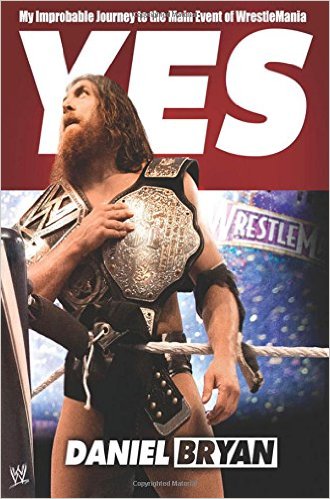
by john | Sep 25, 2015 | Book Spotlight, Reviews
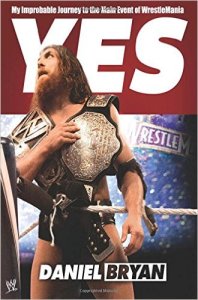 I don’t do many book reviews. The reason is simple – I read mostly in the genre in which I write, and if I don’t like a book, I still work with these people, so I’m keeping my fucking mouth shut. Also, if I don’t like a book, I seldom finish it. There’s a lot of shit on my TBR list, and it’s gotta be pretty good to make it to the top.
I don’t do many book reviews. The reason is simple – I read mostly in the genre in which I write, and if I don’t like a book, I still work with these people, so I’m keeping my fucking mouth shut. Also, if I don’t like a book, I seldom finish it. There’s a lot of shit on my TBR list, and it’s gotta be pretty good to make it to the top.
But I had a long road trip this week, from Charlotte to Nashville and back, so I decided that a new audiobook would be just the thing for my trip. I’ll go ahead and apologize to all my Tennessee and Nashville friends for not visiting – but here’s the schedule for the trip. I left Charlotte at 11AM Wednesday. Got to Nashville around 4:30 PM, had dinner at 7PM with a couple of guys from work (BTW, I also started a new day job, which I’ll talk more about later, and I’m starting a small publishing company later this year, which I’ll talk more about later as well). Then I slept, got up and was at Skyway Studios in Nashville at 11AM for an Arri Lighting LED demo from 11-4, then drove home, arriving home a couple minute before midnight last night. So I didn’t really have any time to stop and say hello. I’ll catch you next time, I promise.
But anyway, the book I chose for the trip was Yes! My Improbable Journey to the Main Event of Wrestlemania by Daniel Dryan with Craig Tello. And while I enjoyed the story, and much of the narration, there are some bits I wanted to talk about.
First off, the structure of the book was strange, and disjointed. The odd-numbered chapters were a third-person narrative, I assume written by Tello, detailing the events of the week leading up to Wrestlemania 30 in New Orleans. It was a fairly close look at the activities of a WWE superstar leading up to the biggest event of the year, but it was dry as toast. It was written in very much AP reporting style, which is fine for newspapers and internet articles, but over 20,000 words is kinda like listening to paint dry. Then there’s the narrator for those sections of the book, who I hated. Peter Berkrot would be a fine narrator for fiction, but a guy with a moderately strong Southern accent narrating the actions of a Pacific Northwest wrestler working in New Orleans was jarring every time his voice came on. And his inability to pronounce some of the wrestler’s names was just sloppy and shoddy work on the part of the producers. I know how the deal works – you either give your narrator a pronunciation guide, preferably recorded, or they get in touch with you and ask how they pronounce names.
OR THEY GO ON YOUTUBE AND LOOK UP HOW TO PRONOUNCE “MARYSE,” BECAUSE SHE WAS ON TV FOR YEARS, YOU JACKASSES!
Sorry, but there’s zero excuse for getting the pronunciation wrong on a WWE diva’s name. She’s famous, for fuck’s sake.
Then there was Bryan’s part of the book. The even-numbered chapters were Daniel Bryan telling his life story leading up to Wrestlemania 30, and it was okay. Bryan admits early on that he’s not a writer, and isn’t comfortable talking about himself, and that shows. His prose is pretty dry and workmanlike, and could certainly have used the help of a good ghost writer to punch it up a little, but it was fine. He reads well enough, and if he never gets too excited about anything, it just goes to emphasize the things he says about his real-life character, that he’s pretty even-keeled. His narrative bits are totally bland, but harmless, like mashed potatoes.
The most jarring part of the book was at about the one-third mark, when suddenly Bryan was narrating one of the third-person sections, and talking about himself in the third person. I don’t know if the chapter was missed when the other guy was recording, or if it was recorded and sounded like crap, so they just had Daniel do that chapter, but after alternating for several hours, suddenly there were three DB-narrated chapters in a row, and they weren’t the first-person narrative that we were used to from him. So that was a production thing that I found really jarring.
So I give it only two stars for production, and really only three stars as a book. I’d give it more if Daniel’s sections had been longer, and the reporting sections had been much shorter, because listening to him talk about his career, his setbacks, his love for Brie, the loss of his father, his family life, his frustrations at WWE, his love for the indies – all that stuff was gold. I wanted twice as much of that stuff and less than half as much of the shit surrounding WM30. That story has been recounted over and over so many times that any wrestling fan is sick of hearing it, and let’s face it – a casual fan isn’t buying a Daniel Bryan autobiography. The stuff that was there, in Bryan’s words, is gold, there just needs to be more of it.
My final verdict – 2.5 stars out of a possible 5. It’s worth it if it’s on sale or you have some Audible credits, but don’t waste full retail on this one.
Narration – Berkrot – 2/Bryan 4
Production – 2
Story – Tello – 2/Bryan 4

by john | May 29, 2015 | Book Spotlight, Writing
Rest High on that Mountain, the latest Bubba the Monster Hunter short story, releases today! It’s exclusive to Kindle for 90 days, but my Patrons can get it free! So head on over to Amazon and check it out, or go over to Patreon and become a patron at the $10/month level and get it free!
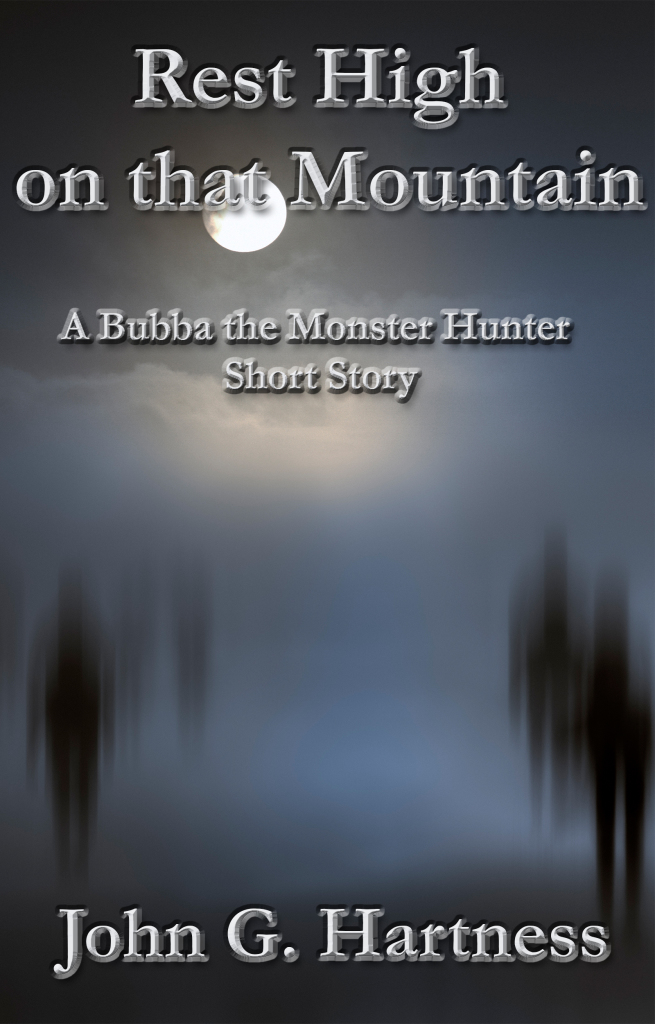
Bubba’s back, and so is baby brother Jason! This time, Jason has sent a pack of wolves to terrorize Bubba’s Aunt Marion for a family heirloom that he thinks will help him take over the supernatural world. He hasn’t taken into account the strength of a mountain woman, or the love Bubba has for home and family. There’s a pack of wolves on the loose, but Bubba’s here, and he’s ready for a fight!
Featuring Great-Grandpappy Beauregard, first seen in Fire on the Mountain!

by john | May 24, 2015 | Book Spotlight, Vampires, Writing
The pre-order is live. The cover is here. The book will be in your hot little hands on June 30. Buy this bad boy now and make this my best release ever! Enough of you folks click the link, and we can maybe blow up Amazon or something.
